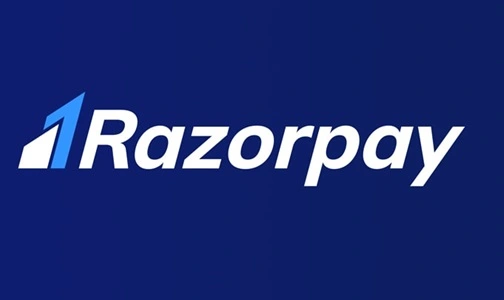Online payments have become a necessary aspect of everyday life in the current digital era. The demand for trustworthy and secure payment gateways is rising with the growth of e-commerce and additional online enterprises. Razorpay is one such application that has grown in popularity recently.
Razorpay, founded in 2014 by former IIT Roorkee students Harshil Mathur and Shashank Kumar, has grown to become one of India’s top online payment gateways, providing various financial services to companies.

Understanding Razorpay
As a leading payment gateway, Razorpay helps companies take online payments from customers using credit/debit cards, UPI, net banking, and other widely used payment methods within India. Since its founding in 2014, Razorpay has become a dependable partner for thousands of companies in various sectors by offering a simple and safe platform for processing payments. Razorpay is a dependable and creative participant in the payment gateway market, helping companies of all sizes optimize their payment processes and spur growth with its state-of-the-art technology and first-rate customer care.
Razorpay Company Details
| Company Name | Razorpay |
| Origin Country | India |
| Founded | 2013 |
| Founders | Harshil Mathur, Shashank Kumar |
| CEO | Harshil Mathur |
| Headquarters | Bangalore, Karnataka, India |
| Industry | Fintech, Payment Processing |
| Key Offerings | Payment Gateway, Payment Processing Solutions |
| Number of Employees | Over 1,500 (as of last update) |
| Official Website | www.razorpay.com |
Razorpay Business Model Explained
Razorpay bases its business on charging a charge for each transaction handled through its platform and offering online payment gateway services to companies. The Standard Plan and the Enterprise Plan are the organization’s customer options.
While no yearly maintenance fee is associated with the Standard Plan, there is a 2-3% transaction processing fee for each transaction made over Razorpay’s platform. This strategy works well for small and medium-sized enterprises as well as startups.
In contrast, the Enterprise Plan is priced and tailored to address the requirements of large businesses specifically. Large businesses that use Razorpay, such as BYJU’S, Airtel, etc., choose this option.
In addition to transaction fees, Razorpay also makes money from its financial products. For example, RazorpayX Business Banking Hub provides businesses with sophisticated financial management capabilities, including current accounts, corporate credit cards, and payouts.
In general, Razorpay’s business strategy is focused on offering dependable and secure payment gateway services to companies, earning income from financial solutions plus transaction fees.
Revenue Sources – How does it make money?
The most crucial element of the Razorpay business plan is this. Razorpay’s main sources of income are from charging fees for its services and offering payment solutions to companies. Among its principal sources of income are:
1. Transaction Fees
This is the main way that money is made. Every transaction handled through Razorpay’s payment gateway is subject to a transaction fee. The fees must be paid by the method of payment and the quantity of transactions.
2. Fees for Subscriptions
Businesses can choose from various payment methods Razorpay provides, such as payment links, subscriptions, and payment gateways. Your businesses must pay a subscription fee to use these services based on your billing cycles. The subscriptions are valid for a hundred years at most. That is a long time. If you choose to bill the subscription daily, monthly, weekly, or annual, the number of billing cycles will vary accordingly. Razorpay subscriptions are supported by plugins such as Woocommerce, OpenCarts, and Magento.
3. Razorpay X Payroll
Razorpay’s revenue has significantly benefited from this new function. It aids in the automatic computation and distribution of salaries. It consists of three plans: Pro Plan, Payrolls, and Free Plan. The suggested option, the Pro plan, has a monthly Razorpay fee of INR 100 per employee. The monthly fee for other payrolls exceeds INR 1500. Still, there are no fees associated with the free plan.
4. API Access Fees
Businesses can link the payment gateway with their websites or mobile apps by using Razorpay’s APIs. Your company must pay a charge to use these APIs (Application Programming Interfaces). It charges a 2% platform fee that you must pay to accept payments. But 18% GST is charged on it.
5. Payment Gateway Reselling
Businesses can resell their payment gateway to clients using Razorpay’s payment gateway reselling services. Additionally, Razorpay charges a fee for this service.
Conclusion
In India, Razorpay has made a name for itself as a reputable integrated payment solutions provider. Its business strategy centers on giving companies secure, hassle-free payment gateway services and making money via transaction fees and financial solutions.

Meet Suhas Harshe, a financial advisor committed to assisting people and businesses in confidently understanding and managing the complexities of the financial world. Suhas has shared his knowledge on various topics like business, investment strategies, optimizing taxes, and promoting financial well-being through articles in InvestmentDose.com


